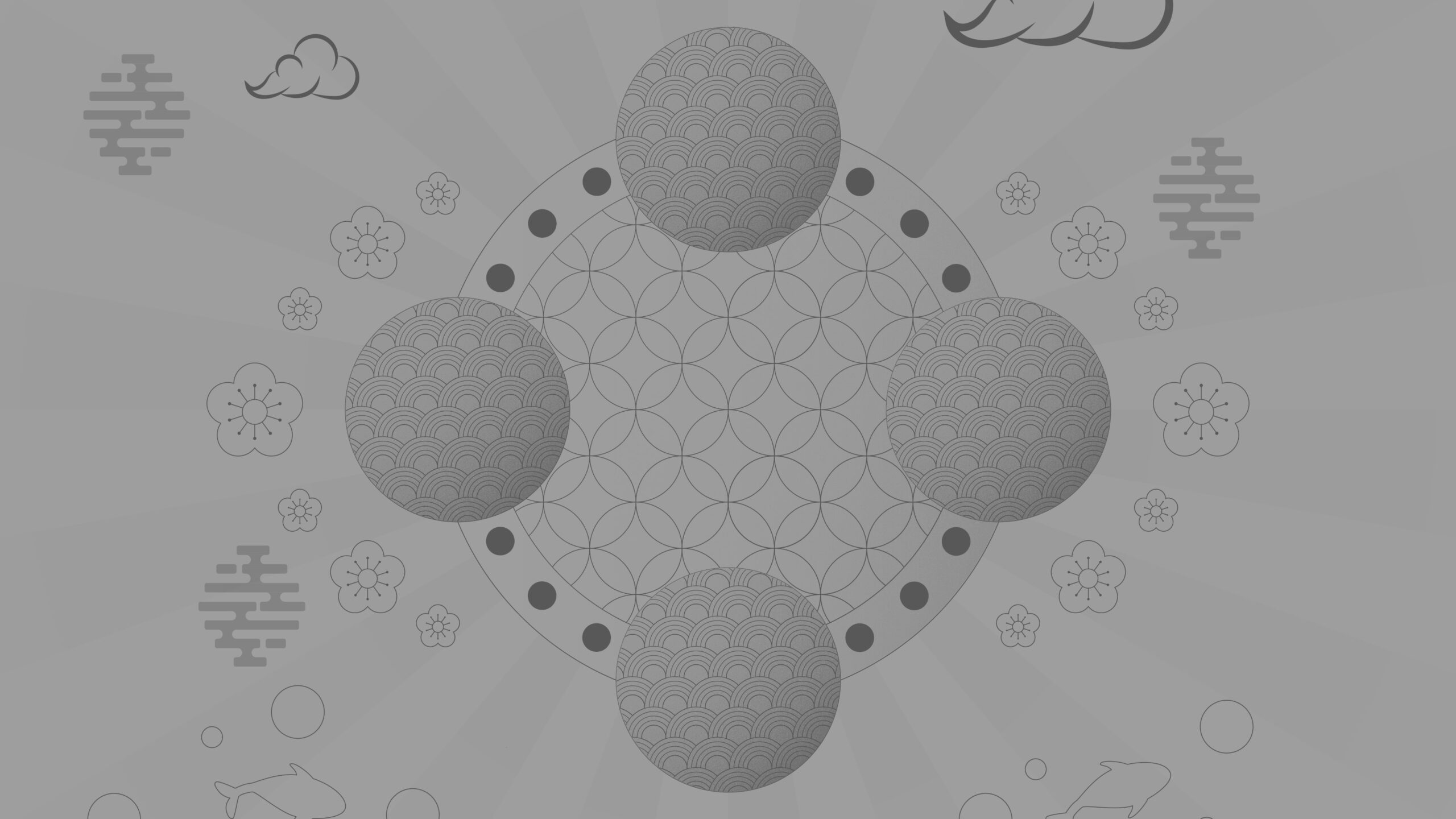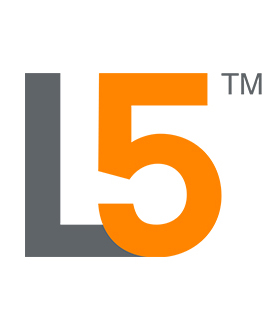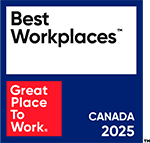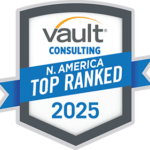
Spotlight
From Celebration to Advancement:
What Does Asian Heritage Month Mean to You? (Part 1)
May 26, 2022
Asian Heritage Month has been celebrated in Canada since the 1990s and was officially recognized by the federal government in May 2002.
Asian Heritage Month is an opportunity for us to learn more about the many achievements and contributions of Canadians of Asian heritage who, throughout our history, have done so much to make Canada the country we know and love.
The theme for Asian Heritage Month 2022 is “continuing a legacy of greatness”. To celebrate this important event, we sat down with Level5 team members of Asian heritage, Consultant Michael Luu, Graphic Designer Aaron Inocencio, Senior Director Raphael Rajan and Managing Partner Hua Yu, to get their take on what this occasion means to them.
What does Asian Heritage Month Mean to You?
Raphael Rajan: I culturally identify as Indian and more specifically South Indian. That’s where my family is from, where I was born, and a lot of the cultural aspects of my identity are still South Indian. But more holistically, I think of myself as a global citizen because I’ve spent significant parts of my life in Bangalore, Dubai, Atlanta, and Toronto, all of which has played a role in shaping who I am today
I think of Asian Heritage Month as a time to celebrate the wonderful diversity and achievements of the Asian community. The richness of our diversity specifically stands out to me, because “Asian” is such a broad term. There are so many different countries within Asia and many different cultures and religions within those countries. If you take India, for example, there are 28 different states, 22 official languages, a whole host of religions, and so much diversity within each of those communities and borders.
In terms of achievement, there is a lot to celebrate because so many of us are doing very cool things and making meaningful impact. Over the years, the stereotypes of successful Asians becoming doctors and engineers have been broken many times over. I think this is an opportunity for us to showcase the length and breadth of our achievements and the impact of our contributions in a variety of different fields. Especially here in North America, we are no longer limited to a few stereotypical views of what Asians might be.
These past couple of years celebrating Asian Heritage Month, has been especially meaningful to me as I think about the road ahead for my twin toddlers, as my wife, Jia, and I navigate nurturing our blended Indian-Chinese household with our Canadian babies!
Aaron Inocencio: I was born in the Philippines with full Filipino blood, and my family immigrated to Canada in 2002. For me, Asian Heritage Month is not only a time to celebrate the achievements that were made by Asians, but also to appreciate how we were brought up, both in the great times and the trying times. It’s a chance to see how our people and their experiences contribute to society at large.
Michael Luu: I identify as an Asian-born Canadian. This month is important to me as it acknowledges and celebrates all people of Asian descent for their contributions and impact around the world. Canada is a melting pot of cultures, with Asian culture being one that is deeply rooted in the history of this country. It is more important than ever that the many Asian ethnic groups come together as a community and support one another.
Hua Yu: I think Asian Heritage Month is special for Canadian society as an expression of our diversity. It is a recognition that each of us has something to contribute to Canadian society and to the Canadian economy. Canada is such a diverse country made up of many different cultures and communities and that makes our country a unique place to live. I feel that our country is more diverse than other countries I have lived in or visited, even the US. Being Asian, I feel comfortable living in Canada, because the macro-environment is very encouraging of diversity.
Asset or Obstacle? How do you see your Asian heritage as playing a role in your career development?
Michael: I think being different has its advantages and disadvantages. On one hand, my background has exposed me to different cultural experiences growing up that shaped my unique perspective. This unique perspective is something more and more organizations – like Level5 Strategy – are looking for today. However, because of those differences, sometimes, it is difficult to make connections with the people around you, which at times can hinder professional development and career progression.
Aaron: I’ve always seen my Asian heritage both ways. On the one hand, I see it as an asset because I’m very hard working. My work ethic was mainly derived from my parents. When we were back in the Philippines my dad had to work hard all his life, he moved to Manila on his own to study and, at times, he even had to forgo food for a couple of days just to make a living. Before coming to Canada, he was working for one of the top banks in the Philippines. The way he made it that far was through a lot of hard work. I have since realized, working hard can be a double-edged sword for me because there are times when I don’t stop until the task is finished. I try to look out for my physical and mental health the best I can, but it is a relentless approach.
The major thing that I have seen as an obstacle is the social component. Especially for me, living with an invisible disability. I’m more of an introvert with a different lens on life, but I try to get out of my shell every day. Sometimes I struggle to interpret things and feel unsure of the social etiquette and body language. It’s as if I have to go through a huge catalogue of what to do and what not to do. I see how everything should be a bit more natural. Also, I can work so hard with that strong work ethic that sometimes I crave social time. I would like to be able to socialize more, talk with others and engage in the best way possible.
Hua: I always think of my Asian Heritage as an asset. Every ethnic background faces its challenges, and I try to always focus on the positive things versus the negative things in my life. In my work as a management consultant, being unique is an asset because you can point corporations to new areas they may not have understood in the past. This can really help them grow their business. Without a complete understanding and recognition of the evolving Canadian population landscape, a corporation’s business strategies may account for only two-thirds of the Canadian population. I don’t think this is wise or inclusive and can result in missed opportunities to capture growing consumer segments. Based on the data published by Census Canada, by 2036, more than 30% of Canadians will be from other countries – not second-generation Canadians but newcomers. That requires companies to think and act differently. With our Asian roots, we are uniquely positioned to help companies understand and capture these great opportunities, which is exciting!
Raphael: Being Asian and Indian has been an asset throughout my career. Watching the amount of hard work my parents put in to building a life for us and getting to the top of their professional careers, had a massive impact on me. I get the passionate work ethic from my dad, Rajan. He always said to me, “Nobody can take your hard work away from you.” That’s something that has stuck with me. I still hear my father’s voice every time I’m in difficult situations, even as a consultant, where you have to stretch, and you do have to work hard to deliver high quality and impactful outcomes. There’s a level of rigor to it. I’ve been in consulting for over a decade and that mindset of working for your own of development, satisfaction, and growth, has driven me to stay in consulting.
But there are also systemic challenges for Asians, especially in North America. There’s only so much that hard work can do for you. There needs to be a level of fairness and equity in the workplace, and though I think we’re making strides, we’re still not where we need to be as a multi-cultured professional society here in Canada. For example, I’ve realized a lot of top-notch, talented, Asians come through the MBA programs in Canada, and often because they’ve worked in Asia, and not in Canada, their work experience is not valued equally. They are offered lower roles and lower pay. Many Asians who come here to set up a new life end up taking these roles given their circumstances and are often unable to advocate for themselves by saying “no, I have phenomenal global experiences. I deserve to be here and be equally valued”. As newcomers, we as a community may lack the confidence to negotiate the role or the pay that we deserve and the system in place is not always conducive to self-advocacy and equity as a right for everyone.
What are the the qualities and strengths that you bring from your cultural heritage to your professional life?
Michael: My cultural heritage allows me to bring in a view that differs from my colleagues, leading to compelling conversations that can create innovative approaches and solutions.
Resilience and perseverance are ingrained in our DNA; handed down to us by our parents who were brought up in adverse environments. Their persistence and strong work ethics helped them capture the limited opportunities they had growing up to create a better future for themselves and their children. These values instilled in me have helped me navigate complex problems and inspired me to welcome challenges as an opportunity to grow.
Hua: The quality that jumps out to me is still “hard working”. I am from China. It was a very different China when I was young. We were very poor at the time, so everything was about the struggle and working hard to get what we wanted. So from a very young age, I understood I would have to work very hard. So that has carried through everywhere I go. I may not be the smartest person in the room, but I may be one of the hardest working!
Apart from being hard working I think “getting things done” or as they say “get sh*t done” is a common Asian characteristic. I’m not saying the Canadian culture is inefficient, but sometimes there is a tendency to think through something multiple times before moving forward. In Chinese culture, we think quickly and then we just do it.
The third characteristic is being humble and treating others like your friends. I always try to present the best version of myself in front of others. I try to show appreciation to those who have given me the opportunities to grow. I have always considered David Kincaid, Founder of Level5, to be my biggest supporter and mentor. Without Dave’s encouragement, I don’t think I would be able to reach the level I am at now professionally. And, in the process of being humble and appreciative, I have made many great friends, including some of my clients, which is truly rewarding.
Aaron: I agree with hardworking. I also got my work ethic from my mother, she worked in the medical field in a hospital in the Philippines before working as a microbiologist here in Canada. There are lots of stories I have heard about overseas Filipino workers, they leave their homes to work in other countries just to provide for their families. It takes a lot of sacrifices to do this, but people do what they must do to make sure their families’ lives are better. Therefore, being hard working is a very important quality for me.
A second point I’d like to make is that as Asians, we tend to be very humble. I do not brag about my achievements or capabilities too much, but I do have a great appreciation for remembering where I started from and I cherish the people I’ve met along the way. I think many Asians are willing to tackle obstacles, even in the hardest times when resilience becomes almost impossible. You have to know that there is always a light at the end of the tunnel, and you may have to tackle many trials in order to become a successful person. In the Filipino community, you’ll see that especially with people that go to church, they know that their faith will bring them to their purpose.
This leads me to my last and most important point, gratitude. For me, it is gratitude for the smallest things. It’s the coffee that you buy every day or even the small social interactions you have. The reason that I can attribute gratitude to my Asian heritage is that we have always been taught that when you give thanks to something it will always come back to you in greater positive amounts.
Raphael: My Asian heritage and culture have also given me faith – the will to persevere and see everything through. I learned faith from my brilliant mother, Latha. In undergrad she triple-majored in in biology, chemistry, and physics and had a great career in banking. But she was all about having faith and being optimistic, not only through religion but also in the sense of our Indian community and values. She would say, “We’re here for you. No matter how hard the obstacle is, you’ll get through with faith.” Believe in yourself. Believe in your family and your community. Approach life with optimism.
Throughout my career I’ve taken pride in taking on step-up opportunities. Even when I probably was not fully ready. I’ve jumped in anyway and figured it out. I believe this is a huge strength for a lot of Asians. Many of us come from complex and competitive backgrounds. We have fortitude instilled in us from a young age. We’re competing against more people and sometimes for fewer resources, so being able to navigate complex and difficult situations is in our DNA. From a professional standpoint I think this is highly beneficial because we find a way to solve problems, or we use our support systems and community to find solutions, and that can yield tremendous benefit to organizations.
This is the first of a two-part interview series. To continue reading, click here to go to Part 2



